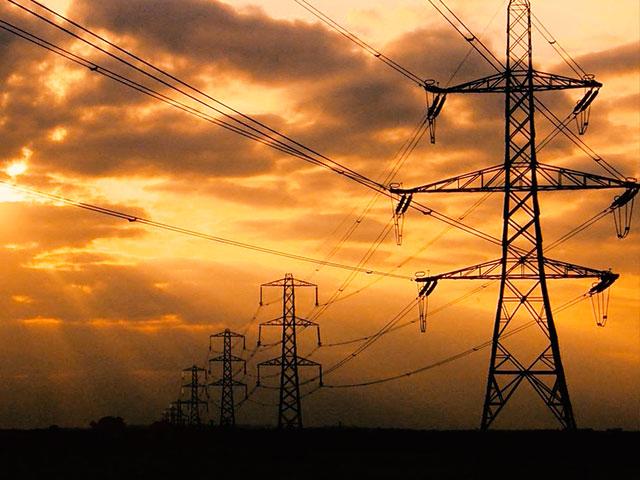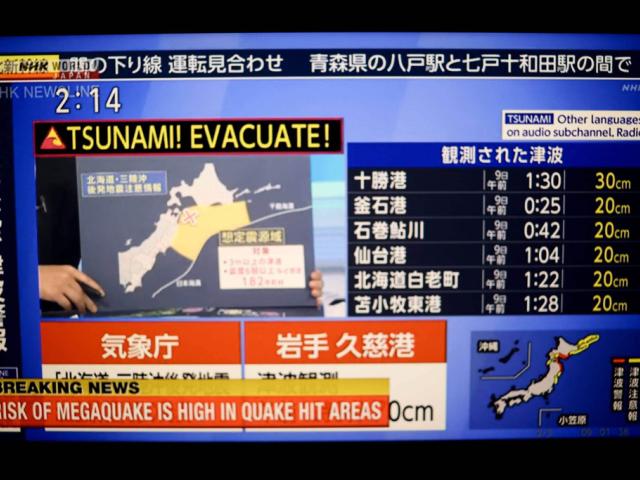Life as we know it is highly dependent on electricity – lights, water, gas pumps, ATMs, medical equipment, the list goes on and on. But there are several threats that could disable US power grid for weeks, months, even up to a year, putting millions of lives at stake.
That's why Frank Gaffney is on the frontlines of sounding the alarm about the vulnerability of the nation's electric grid. "At some point we risk everything," said Gaffney who heads the Center for Security Policy in Washington, DC.
"Our electric infrastructure is very susceptible to the sorts of dangers that are absolutely predictable," Gaffney said.
Danger from an Electromagnetic Pulse
One of those dangers is what's known as an EMP, or electromagnetic pulse, which could happen if an adversary were to detonate a nuclear weapon in space, causing a burst of radiation that won't hurt people but would fry our electric grid.
The same thing could happen naturally in the event of a solar storm. That would involve a solar flare launching radiation from the sun on a collision course with Earth.

NASA photo from Jan. 12, 2015 shows a notable solar flare - the kind of celestial event that could launch radiation into space and interfere with electric grids on Earth.
Danger from Magnetic Pole Reversal
Then there's another naturally occurring process deep within the earth that could result in what's known as a magnetic pole reversal, changing magnetic north to south and south to north. Dr. Hugh Ross talked it about on a recent edition of the 700 Club.
"The biggest consequence is the damage it could do to our electric power grids," Ross said. "And so I think it would be wise in view of the fact that we know this is going to happen in the relatively near future, to take steps to protect the world's power grids."
How to Defend the Grid
What can we do? Gaffney says there are several effective steps the military took to protect sensitive electric assets some 30 years ago after discovering these vulnerabilities.
"What are called surge protectors, think of what you hopefully have your computer plugged into, only bigger," Gaffney said. "Shunts, which essentially move electric current around what you're trying to protect – and, faraday cages, and it turns out that we have those cages in our home called a microwave oven. The idea for those cages is protect us from radiation being emitted by those ovens but they (also)have the effect of protecting things inside from radiation coming at it."
Is the Threat Serious Enough?
Taking these protective measures would cost billions of dollars, and at least one organization questions the need.
In a recent report, The Electric Power Research Institute, or EPRI, said while protecting the grid would be helpful, even without those efforts "the combined effects of the initial and late pulses could trigger a regional service interruption but would not trigger a nationwide grid failure."
The report goes on to say "Possible damage to large power transformers was found to be minimal."
Gaffney is critical of the report, noting EPRI is affiliated with the electric utilities. He says their findings clash sharply with those of a federal commission that studied the problem.
"Its chairman estimated that if the lights were to go out for a year or more, 9 out of 10 of us would die," Gaffney said.
Gaffney warns the odds are against us and the stakes are too high to take chances.
"Even if no enemy used either what's called EMP or sabotage or cyber-attacks to take down our grid with catastrophic consequences for our country and our people, mother nature is going to do it," Gaffney said.
There is an ongoing debate over who would pay for upgrades to the power grid, whether it would be utility companies, the government, or some combination of big business and federal dollars. CBN News reached out to EPRI for an interview, but the company decline to comment on this story.
Did you know?
God is everywhere—even in the news. That’s why we view every news story through the lens of faith. We are committed to delivering quality independent Christian journalism you can trust. But it takes a lot of hard work, time, and money to do what we do. Help us continue to be a voice for truth in the media by supporting CBN News for as little as $1.











 Support CBN News
Support CBN News










